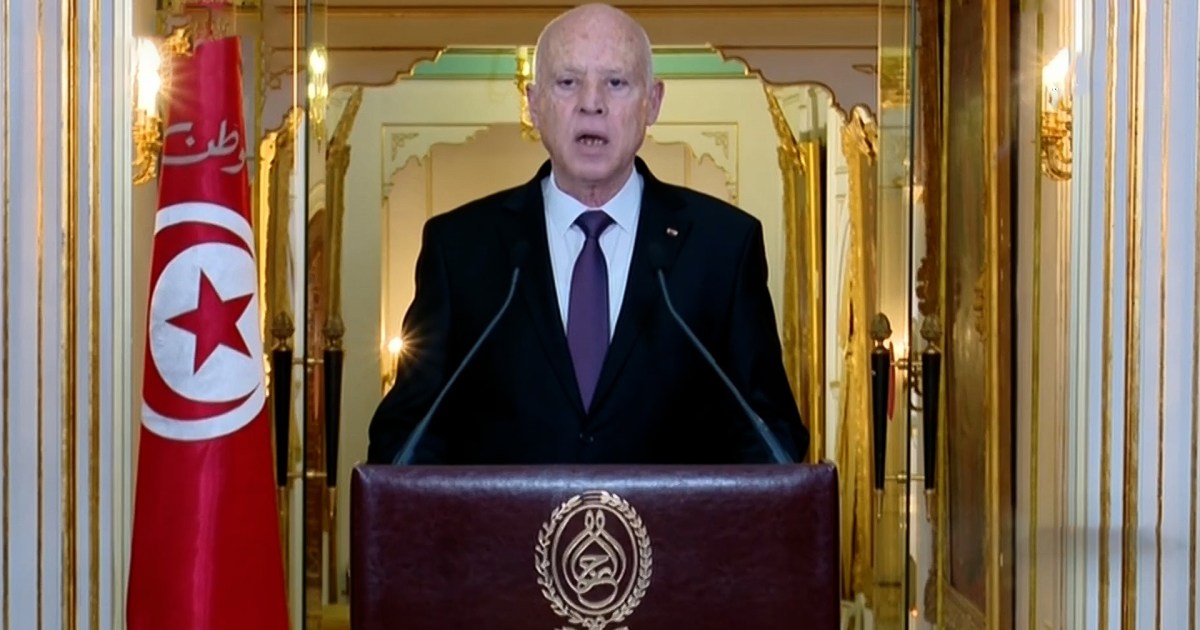Today, Thursday, Tunisian President Qais Saeed said that the judiciary is not the state or the government and that it must implement the law, a day after Saeed issued a decree that put an end to the privileges of members of the Judicial Council.
For his part, the head of the Supreme Judicial Council, Youssef Bouzacher, considered that the president's decisions constitute pressure on the council.
The President stated that the judiciary is free and that it is working to remain free, but added that "impunity must not continue."
He accused a group of people, whom he did not name, of working day and night to tame the media, and said that the hidden regime is still ruling Tunisia.
A statement issued by the presidency today said that Saeed signed a decree yesterday that stipulates an end to the grants and privileges granted to members of the Supreme Judicial Council.
The decree implicitly represents a blow to the judicial system, which has been repeatedly criticized by Saeed. During his speeches in the last period, he addressed the judiciary, and often stressed that the judiciary is the judiciary of the state, and it is independent over it only the law, and there is no way to purify the country except with a just judiciary, and judges are above all suspicions. .
pressure on the judges
On the other hand, the head of the Supreme Judicial Council said - in a statement to Al Jazeera today - that the recent measures constitute pressure on the council, in reference to the president's decree, and added, "We are performing our judicial role and we ask everyone to respect our performance for it."
He stressed that the members of the Supreme Judicial Council will fight a "battle" to preserve the independence of the judiciary, and that they have sworn an oath to perform this task in accordance with the provisions of the law and the constitution.
"We see that what has happened now is the interference of the executive authority through decrees in the budget of the Supreme Judicial Council, and what is worrying about this is the prejudice to the constitutional status of the Council."
Recently, a controversy prevailed in Tunisian human rights circles regarding the "independence of the judiciary", in light of the president's statements in which he stressed that the judiciary is a "function of the state" and his allusion to the dissolution of the Supreme Judicial Council.
independence of the judiciary
The debate on the independence of the judiciary has flared up since Justice Minister Leila Jaffal announced, last October, the preparation of a draft law related to the Supreme Judicial Council, which angered many judges.
The judges considered the Minister of Justice's statements an interference in the judicial affairs, and the President refuted that, stressing that the preparation of this project will be carried out with the participation of the judges themselves.
Yesterday, Amal and Action called on the judiciary to continue standing "against the arbitrariness and tyranny of the coup."
This movement, which is an independent parliamentary list, added that the president is continuing with "a policy of escaping forward, impotence, failure, and the absence of vision and perception of solutions to the crises that the country is experiencing."
It should be noted that the tension between the president and the judges is part of the severe political crisis that Tunisia has been experiencing since last July 25, after Saied took exceptional measures, most notably freezing the powers of Parliament, lifting the immunity of its deputies, abolishing the constitutionality monitoring body, and issuing legislation by presidential decrees. The dismissal of the prime minister and the formation of a new one.
The majority of political forces reject these decisions, and consider them a coup against the constitution and an infringement of rights and freedoms, while other forces support them and see them as a correction of the course of the 2011 revolution that toppled then-President Zine El Abidine Ben Ali.

